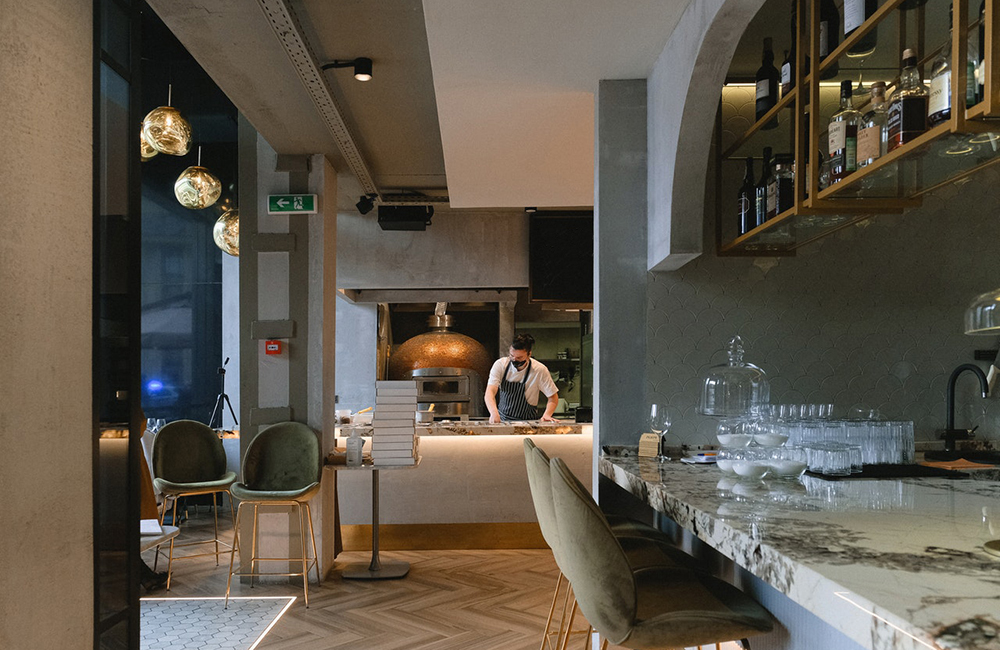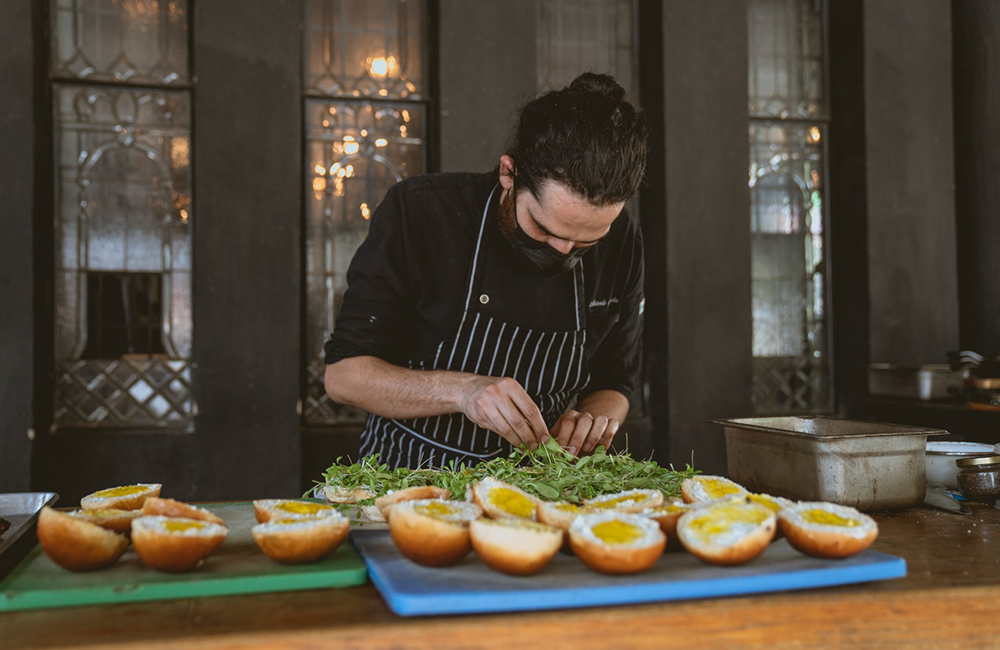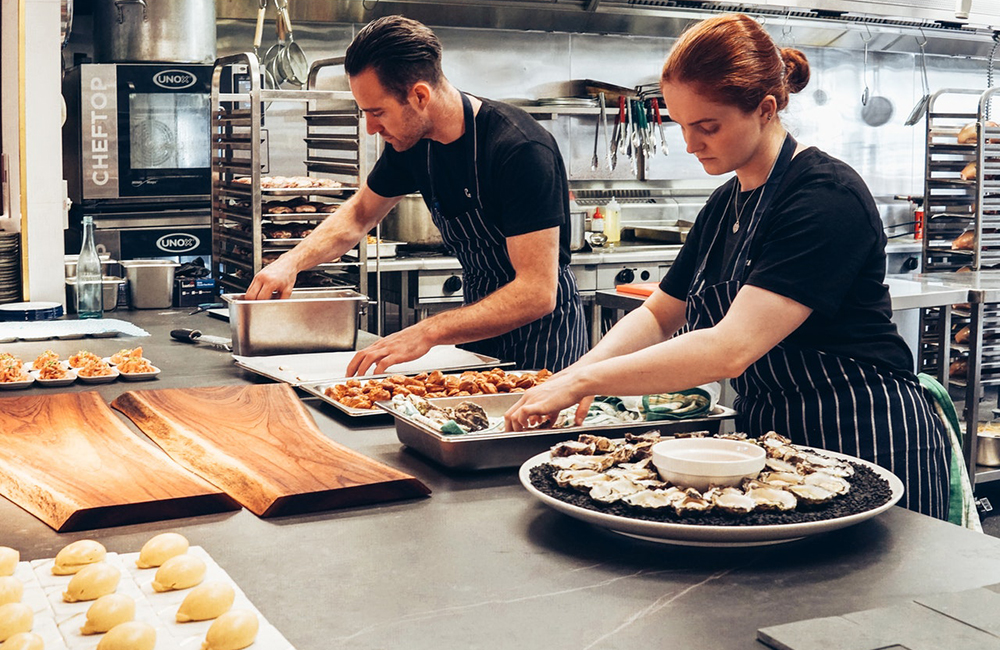Are you a restaurant host kitchen yet? If not and you want to learn how to get extra cash for a restaurant, this is the perfect article for you. Of course, revenue is just one part of the equation, but another part of the equation is that restaurants often have too much kitchen space. Restaurant kitchen space that goes unused is simply leaving money on the table. However, one way to start making use of this space is to become a host kitchen.

What is a Host Kitchen?
When you start researching the subject, it will quickly make sense why restaurants are becoming host kitchens.
A host kitchen is an existing operating restaurant that wants to optimize their under-utilized kitchen space by partnering with other brands to cook and sell third-party food. It is basically a miniature, delivery-only restaurant within an existing food-serving establishment.
The host kitchen can be one of two things:
Internal Brand
The pandemic led to a lot of restaurants closing their doors for good. But some owners saw extreme value in the businesses that were closing.
For example, one taco restaurant had to shutter its doors. So, one of the neighboring businesses (restaurant A) decided to purchase the failing business (restaurant B) because they had a strong following.
The new owner kept the taco operation alive by using their (restaurant's A) underutilized kitchen space. The taco shop (B) rents out the space, sells their goods online as a virtual restaurant brand while the main operation of a "restaurant A" continues it's business as usual.
A lot of restaurants followed this model and became delivery-only businesses.
External Brand
Of course, many restaurant owners simply need extra revenue for a restaurant to remain solvent. In this case, the virtual restaurant brand would approach the physical restaurant with underutilized kitchen space and ask to rent the space out.
The idea is that the brand will never have its own storefront and simply continue its operations online, offering delivery-only food.
In fact, a local food truck operator that keeps selling out in my area has chosen to look for a commercial kitchen to rent. The owner will not sell their food virtually, but they cannot keep up with demand in their food truck.
So, they want to rent out kitchen space to prepare food and increase their sales by not running out of food every day.
You may not want to learn how to boost restaurant sales by purchasing another business, so renting out space makes the most sense.

Why Host Kitchens Make Sense
Restaurants have not been the same since 2019, and one of the main issues nationwide is that there's a lot of unused kitchen capacity. So, bringing in revenue through a partnership is one of the easiest ways to make money.
From the kitchen owner's perspective, there's no need to worry about:
- Hiring new workers
- Investing in new capacity
- Paying extra rent
Instead, you either hire a third-party company that will handle the host kitchen or let the restaurant owner handle logistics. Becoming a host kitchen can earn some restaurants an additional $5,000 to $20,000 a month.
Restaurants can sell many brands, and this is expected to continue to grow by 2025.
In fact, experts suggest that by 2025, more than 50% of restaurants will be selling multiple brands out of a single location. By 2032, it's expected that 90% of restaurant owners will use the host kitchen concept.
Are Host Kitchens a New Concept?
No, although many people haven't experienced host kitchens before. The concept is coming to life in new ways because of connectivity and the Internet. In the past, it was very confusing to see signage for host kitchens outside of a restaurant.
Does the restaurant sell tacos or pizza?
However, with today's technology and online ordering opportunities, restaurants can maximize their kitchen space with host kitchens without negatively impacting their brand in the process.
In the United States, there are over 1 million commercial kitchens.
Culling the number of restaurants is possible by maximizing the kitchen space that is already available and not being used to its fullest extent. In addition, expanding to a host kitchen can help restaurants increase profits without the additional overhead.
If you're running your own restaurant, the overhead of using your own kitchen is:
- Food costs
- Royalties, if they exist
Many restaurants try to fill the voids in their cities by running two or three concept restaurants out of their host kitchen. Of course, you can always spin these brands off into their own entities and even have a traditional restaurant if you want.
Furthermore, the host kitchen allows for restaurants to try concepts to see if they'll work on a larger scale.
The elimination of renting out space and committing to running a traditional restaurant can help expand the restaurant industry in the years ahead.

Virtual Brands Offer Large Expansion
Expanding the concept of a host kitchen to many locations is possible. If the virtual brand's popularity grows, it can provide incremental revenue increases when added to more locations.
What a lot of restaurant owners are doing is using host kitchens for their own businesses to:
- Generate more revenue
- Pay chefs and workers more
- Boost their profits
Since the restaurant uses the existing staff to run their new concept restaurants, it's crucial to bring all staff members together and on board with the solution. Once on board, the additional revenue can pay staff a higher wage or increase their benefits.
During a time when there's a significant labor shortage, increasing wages and offering better benefits can help restaurants retain talent while growing other brands.
Experts suggest that when host kitchens are added to a restaurant's concept, they offer a more sustainable business model. Even if the restaurant is only offering delivery and is being handled by another entrepreneur, it can help bring in revenue.
Partnerships, with a profit percentage share going to the host kitchen, can mean the difference between a restaurant surviving or failing.
Of course, many concepts will fail, but with the right fit, these additional revenue streams can help restaurants survive slow seasons, offer better pay and increase profits with little capital investment involved.


